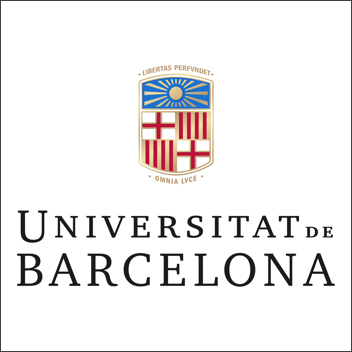Statement from Barcelona Science Park and University of Barcelona regarding project under Research Challenges programme

The Barcelona Science Park is home to a company that is heading up a project through the Research Challenges programme, of the Spanish Ministry of Science and Innovation, aiming to develop a drug to treat hepatic fibrosis and myelofibrosis. The incidence of these diseases is growing —in Europe, hepatic fibrosis currently affects roughly 2.1% of the population and myelofibrosis, between 1 and 9 of every 100,000 inhabitants— and, for now, there is no effective treatment available for either one.
According to European regulations, before testing drugs on humans, a toxicity study must be carried out in two species of mammals, and one must not be a rodent species. So, the study must be conducted with another type of animal —in this case beagles— to determine whether it can later be tested on humans.
The Science Park doesnʼt have an animal house for this sort of experiments, so a meticulous tender was held to award this part of the study. Vivotecnia, based in Madrid, was the winning bidder.
The project will be carried out at the Vivotecnia headquarters in March. In the first part of the study, still in the preclinical phase, the drug will be administered to six dogs and Vivotecnia has already been asked to put them up for adoption after the study is complete. In this regard, the UB, through the Park, will work with the company to find them homes.
The second part of the study, as laid out in the Challenges project, must carry out a trial on the tissue of 32 dogs through autopsies. This study will analyse the chronic toxicology of the molecules and assess their safety, before moving into the clinical phases with humans. If the results conclude that the molecule is safe, drug development will continue, moving into the next phase.
The Science Park and the UB have exhaustively reviewed all the documents associated with the project to ensure it complies strictly with all applicable regulations. Currently, there is no known alternative to using these animals that could replace the methodology in this type of research. As the Federation of Spanish Scientific Societies maintains, the use of animals is a necessary practice for advancing in the study of treatments, surgical techniques and vaccines, among others.
Vivotecnia has accredited that it has authorisation from the Directorate-General of the Environment for the Community of Madrid to use dogs in research, and from the Directorate-General of Agriculture, Livestock and Food of the Community of Madrid to execute projects for “non-clinical pharmacokinetics and toxicity studies in dogs, type I”, which corresponds to the service awarded.

The Barcelona Science Park is home to a company that is heading up a project through the Research Challenges programme, of the Spanish Ministry of Science and Innovation, aiming to develop a drug to treat hepatic fibrosis and myelofibrosis. The incidence of these diseases is growing —in Europe, hepatic fibrosis currently affects roughly 2.1% of the population and myelofibrosis, between 1 and 9 of every 100,000 inhabitants— and, for now, there is no effective treatment available for either one.
According to European regulations, before testing drugs on humans, a toxicity study must be carried out in two species of mammals, and one must not be a rodent species. So, the study must be conducted with another type of animal —in this case beagles— to determine whether it can later be tested on humans.
The Science Park doesnʼt have an animal house for this sort of experiments, so a meticulous tender was held to award this part of the study. Vivotecnia, based in Madrid, was the winning bidder.
The project will be carried out at the Vivotecnia headquarters in March. In the first part of the study, still in the preclinical phase, the drug will be administered to six dogs and Vivotecnia has already been asked to put them up for adoption after the study is complete. In this regard, the UB, through the Park, will work with the company to find them homes.
The second part of the study, as laid out in the Challenges project, must carry out a trial on the tissue of 32 dogs through autopsies. This study will analyse the chronic toxicology of the molecules and assess their safety, before moving into the clinical phases with humans. If the results conclude that the molecule is safe, drug development will continue, moving into the next phase.
The Science Park and the UB have exhaustively reviewed all the documents associated with the project to ensure it complies strictly with all applicable regulations. Currently, there is no known alternative to using these animals that could replace the methodology in this type of research. As the Federation of Spanish Scientific Societies maintains, the use of animals is a necessary practice for advancing in the study of treatments, surgical techniques and vaccines, among others.
Vivotecnia has accredited that it has authorisation from the Directorate-General of the Environment for the Community of Madrid to use dogs in research, and from the Directorate-General of Agriculture, Livestock and Food of the Community of Madrid to execute projects for “non-clinical pharmacokinetics and toxicity studies in dogs, type I”, which corresponds to the service awarded.
